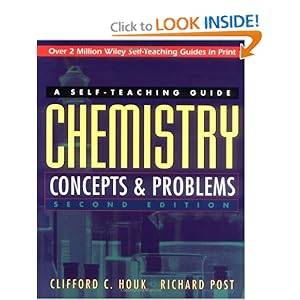Skull Pilot
Diamond Member
- Nov 17, 2007
- 45,446
- 6,163
- 1,830
He was talking history not organic chemistry.
And at a later scene in the movie, he does his girlfriend's Organic Chemistry problems for her in a couple of hours.
And BTW I do believe one could learn organic chemistry as well as any other undergrad from reading the books. Possibly the only thing missing that I see as a detriment would be the lab time.
You've obviously never taken Organic Chemistry. I learned by going to every lecture, reading every page of the book, and doing every problem in the book. If I would have missed out on any of those three, I wouldn't have learned *basic* Organic Chemistry.
Actually I have. 94 average in that class.
The real test of whether you knew what was going on were the hellacious exams prepared by the professor who taught the lecture. He was a great teacher, so if you did the work, you generally survived. You also were able to understand book text by going to lecture and listening to him explain it.
And what was the preparation for OC exams?
Mostly memorization.
I don't know if you've ever read a basic science text book. The words don't exactly jump off the page at you.
Stop assuming buddy. I have a degree in EE. In fact when i was taking Physics and Chem I spent my summers reading the texts for my following semesters. They're boring as all shit but they are certainly not indecipherable without the sage guidance of a professor
[/QUOTE]But it's just so hard for you to admit that a person does not need to attend university to be just as and quite possibly more educated than some idiot who did nothing but memorize the answers a prof wanted to hear isn't it?
Because education is a formal process, just like military training.
Please do not equate performing dangerous physical acts in life or death situations to taking a chemistry exam.
Ask a Navy pilot what's more difficult. Taking a chem exam or landing a jet on a pitching, rolling boat in the middle of the ocean at night with no lights on.
God you are an arrogant fuck. You fit right into the medical establishment don't you.
Last edited:




